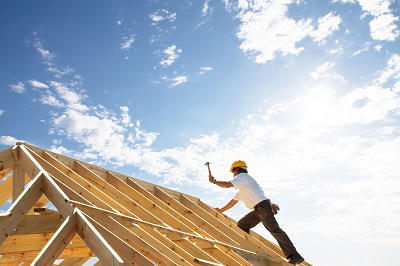
Your Roof, Home Insurance and Windstorm Coverage
Homeowners insurance provides coverage against numerous severe weather hazards, and wind damage is often one of them. However, you should not assume that this coverage is automatically included on your plan. Often, there are a few exclusions and other policy exceptions that will limit your benefits in certain circumstances.
Some of these limitations might arise when it comes to the coverage available for your roof. As one of your home’s primary structural components, it is designed to withstand wind. However, it is not invincible, and you must repair roof damage as expediently as possible. That’s why you need to ensure that your homeowners policy includes the appropriate coverage in the first place.
Unpreventable Damage
All home insurance policies are designed to insure you against unpreventable, unexpected property damage. Wind damage falls under this definition, so if your roof sustains damage in this case, then you will be able to pay to repair it. However, there are some exceptions to this coverage rule.
Wear and Tear
Home insurance will not pay for normal wear & tear, which is why you are responsible for maintaining your property appropriately. Additionally, if your roof has existing damage, and high winds proceed to damage it further, then you might have challenges filing a claim. If your insurer can prove that existing problems with your roof exacerbated the damage, then they might refuse to cover you.
Windstorm Coverage Exclusions
Some homeowners policies do not cover wind damage under their standard benefits. Insurers often exclude this coverage in areas with significant wind damage risks, such as coastal communities or areas with high risks of tornadoes. To get that benefit, the homeowner might need to enroll in a windstorm endorsement, sometimes called a named-storm endorsement.
What to Do When Damage Occurs
When your roof gets damaged by wind, you need to document the incident. Most insurers only give you a limited amount of time to report and file claims (generally about one calendar year), and you naturally want to have the repairs made as soon as possible.
At the time damage occurs, do what you can immediately to stop it from getting worse. For example, cover exposed interiors with tarps to keep out any moisture. Simultaneously, contact your home insurer to begin the claims filing process. They will instruct you on how to document your claim, and sometimes a claims adjuster will visit your property to analyze the issue.
When negotiating with your insurer about the damage your roof sustained, be truthful. Do not try to hide any pre-existing roof damage from them, but do not feel that you won’t be able to file a claim just because your roof might have had minor existing damage.
Categories: Blog
